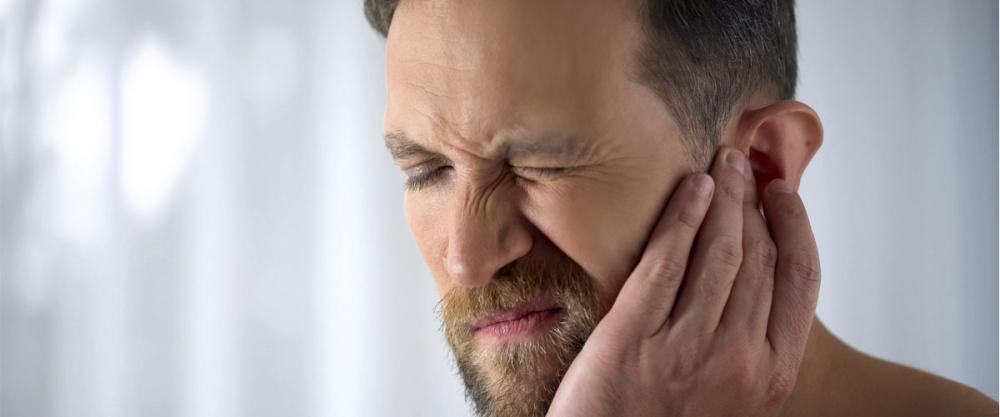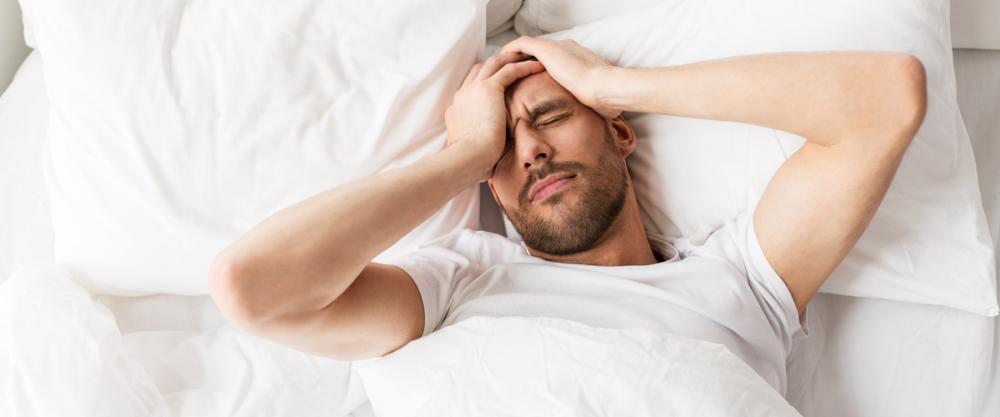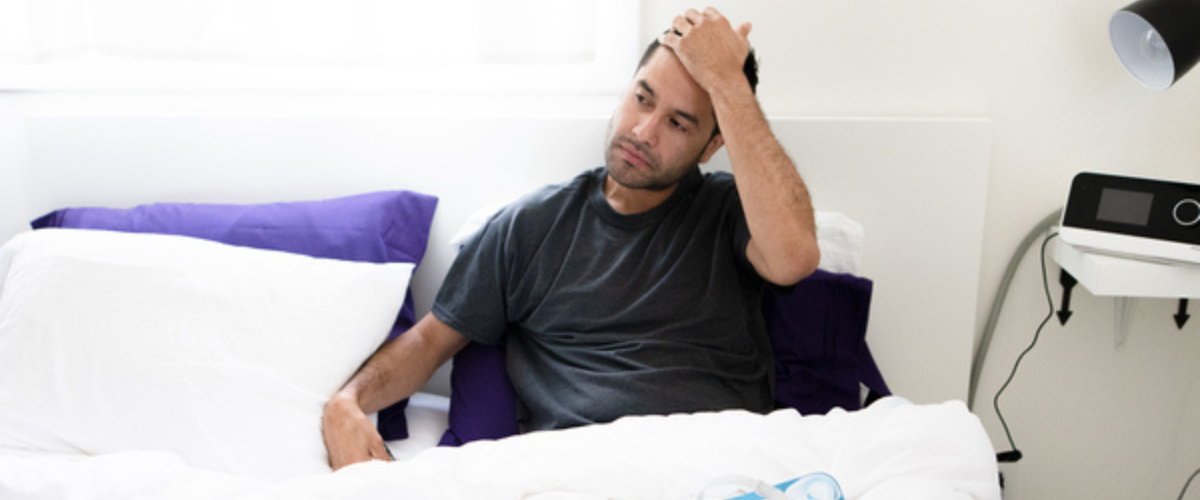Sleep apnea is a sleep disorder that can be dangerous if not treated. Common symptoms include snoring, excessive daytime sleepiness, and agitation. It’s also known to increase your risk of cardiovascular problems and other health conditions. Recent studies have explored the link between sleep apnea and tinnitus. Some have found that people with sleep apnea have a higher risk of developing both tinnitus and hearing loss.
What Is Sleep Apnea?
Sleep apnea is a common health condition that interrupts your sleep with symptoms such as snoring and gasping for air. People with sleep apnea can stop breathing multiple times throughout the night. In the most common type of sleep apnea, obstructive sleep apnea (OSA), this happens because the tissues in the back of the throat collapse and partially or completely block your airways. Your body then wakes you up so that breathing can restart.
Although these sleep disturbances are very brief, repeated awakenings throughout the night can have a serious impact. Sleep apnea can lead to overall poor sleep quality and can affect your daily life. Left untreated, sleep apnea can lead to a wide variety of other health problems, including heart disease and even mental health issues.
Tinnitus Causes
There are several factors that can lead to tinnitus. Injuries, illness, and even some medications can cause tinnitus. Other common causes include:
• Middle ear infections
• Hearing loss
• Middle ear infections
• Hearing loss
• Blockage in the inner ear
• Head injury
• Neck injury
• Temporomandibular joint (TMJ) disorder
• Meniere’s disease
• Abnormal growth of ear bones
• Eustachian tube dysfunction
• Antibiotics
• Diuretics
• Nonsteroidal anti-inflammatory drugs (NSAIDs)
Risk Factors
Other factors don’t cause tinnitus but can increase your risk. These include
• Older age
• Frequent exposure to loud noises
• Frequent exposure to high frequency sounds
• Heavy alcohol use
• Smoking
• Obesity
• Diabetes
• High blood pressure
The Link Between Sleep Apnea, Tinnitus, and Hearing Loss
Hearing loss is common among people who have tinnitus. Both conditions are related to factors such as ear damage, ear infections, and age. The conditions often co-occur and affect the same ear. People with tinnitus in both ears often also experience hearing loss in both ears.
There is evidence to suggest that tinnitus and sleep apnea might be connected. Both conditions can make it difficult to get a good night’s sleep, but research has also found that it’s common for people with sleep apnea to experience tinnitus and hearing loss. It’s believed that sleep apnea can increase the risk of sleep apnea. In fact, a recent study conducted by Albany Medical College found that sleep apnea caused a 30 percent increase in the risk of hearing loss.
There are a few possible explanations for this link. A primary theory is that sleep apnea lowers the blood oxygen levels in your body. This reduced oxygen can damage the cells in your ears. Over time, this can lead to tinnitus and hearing loss. It’s also been suggested that the link might be the loud snoring caused by sleep apnea. Frequent exposure to loud noises is a known risk factor for tinnitus.
Additional studies have found that the severity of sleep apnea can impact the severity of hearing loss. People who have frequent sleep disturbances and other sleep problems because of sleep apnea can experience increased hearing impairment. However, further studies into all connections between sleep apnea, tinnitus, and hearing loss are still needed.
Treating These Conditions
Treating sleep apnea can sometimes help relieve the symptoms of tinnitus. Often, the best treatment for sleep apnea is lifestyle changes. This generally includes quitting smoking, achieving a healthy weight, and increasing your daily physical activity. If additional sleep apnea treatment is needed, it might include:
Continuous positive airway pressure therapy (CPAP therapy) — A CPAP machine is a home device you wear at night to keep your airways open.
Oral appliances — A dentist can create oral appliances for you to wear at night. These custom appliances can keep airways open.
Surgery — Sometimes, surgery is used as a treatment option for severe OSA. Surgery can open airways and prevent future sleep apnea episodes.
Treatment for tinnitus depends on the underlying cause and on the severity. Your doctor can put together a plan to treat both tinnitus and hearing loss. Options might include:
Medication changes — Tinnitus that is linked to medication can often be resolved by a change in medication.
Hearing aids — Hearing aids can help improve overall hearing and can reduce the symptoms of tinnitus and any related hearing loss.
Ear wax removal — Earwax can block the ear and make tinnitus symptoms worse. Removing it can help reduce tinnitus symptoms.
White noise machines — The sound of white noise machines can combat the volume of ear ringing and make it easier to sleep and function.
Sound suppressors — Similarly, these in-ear devices make a constant, low-pitched sound that can drown out the ringing of tinnitus.
Surgery — Surgery is sometimes an option to treat chronic tinnitus caused by damage to blood vessels or structures in the ear.
References
Koning, H. M. (2019, June 30). Sleep disturbances associated with tinnitus: Reduce the maximal intensity of tinnitus. The International Tinnitus Journal. Retrieved October 17, 2022, from https://www.tinnitusjournal.com/articles/sleep-disturbances-associated-with-tinnitus-reduce-the-maximal-intensity-of-tinnitus-11493.html







